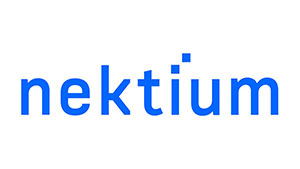Weight management supplements are now, more than ever, a blockbuster sector within the nutraceutical industry.
According to WHO statistics, between 30 and 70% of the adult European population is overweight; and, according to forecasts, these statistics will remain similar in upcoming years.
Technological advances have brought all kinds of convenience to our lives, be it in terms of mobility or through processed food.
The global tendency towards physical activity reduction and an augmented dietary intake of fats, sugars and calories is leading to a growing propagation of overweight, obesity and lifestyle-related diseases — a progressive health crisis that needs to be addressed.1
The key to avoiding weight gain is to control energy intake and energy expenditure by simply following a healthy diet and doing enough daily physical activity to burn calories. Spain-based botanical extract company Nektium developed the formulation Xanthigen by exploiting the synergy between two popular weight loss ingredients.
When combined, pomegranate seed oil (Punica granatum) and brown seaweed extract (Undaria pinnatifida) act on the browning of white adipose tissue. Previously, it was believed that white adipose tissue was not able to adopt the features of brown adipose tissue ... but recent research proved the contrary.2
There are different types of fat in the body. Normally, they are characterised as either brown adipose tissue or white adipose tissue, with each of them having different properties. The primary function of the brown adipose tissue is thermogenesis — generating heat by burning calories.
The drawback is that brown adipose tissue is especially abundant in newborns, whereas adults have relatively little brown adipose tissue. With increasing age, the brown adipose tissue in our bodies decreases even more, producing an unfavourable situation for weight loss.
In contrast to brown adipose tissue, white adipose tissue is an energy reserve in the body, which means that this is where fat is stored. The bioactive compound fucoxanthin, derived from brown seaweed, stimulates lipolysis and inhibits lipogenesis.1
In other words, it promotes the breakdown of lipids and avoids the metabolic formation of fat. Punicic acid, from pomegranate seed oil, helps to reduce triglycerides and improves glucose tolerance and mitochondrial function in adipocytes.3
The synergy between these two extracts promotes weight loss by increasing energy expenditure through the browning of white adipose tissue — which is catalysed by Uncoupling Protein 1 (UCP-1) induction in mitochondria, suppressing adipocyte differentiation and lipid accumulation.
As a result, body and liver fat is reduced. A clinical study showed an increased energy expenditure by as much as 400 kcal per day, resulting in an average weight loss of 5.5 kg after 16 weeks, a significant reduction in waist circumference as well as reduced body and liver fat content.4
It is crucial for consumers to understand that even though supplements can contribute positively to managing weight, they should not be regarded as a replacement for a healthy lifestyle that includes a balanced diet and exercise programme.
References
- M.A. Gammone and N. D’Orazio, “Anti-Obesity Activity of the Marine Carotenoid Fucoxanthin,” Marine Drugs 13, 2196–2214 (2015).
- A. Frenzl and F.W. Kiefer, “Brown Adipose Tissue and Thermogenesis,” Hormone Molecular Biology and Clinical Investigation 19(1), 25–37 (2014).
- I.O. Vroegrijk, et al., “Pomegranate Seed Oil, a Rich Source of Punicic Acid, Prevents Diet-Induced Obesity and Insulin Resistance in Mice,” Food and Chemical Toxicology 49, 1426–1430 (2011).
- M. Abidov, et al., “The Effects of Xanthigen in the Weight Management of Obese Premenopausal Women with Non-Alcoholic Fatty Liver Disease and Normal Liver Fat,” Diabetes, Obesity and Metabolism 12, 72–81 (2010).

